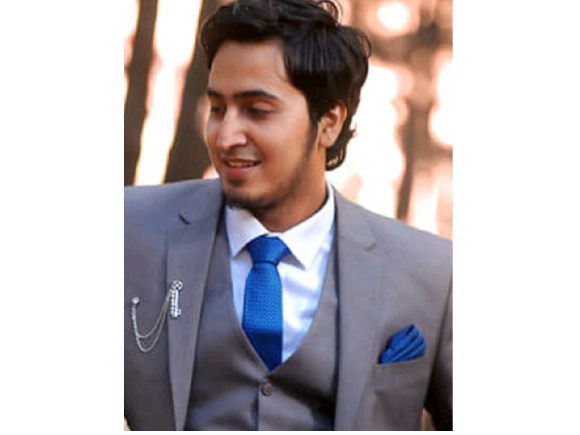
MSc Tropical Paediatrics (Thomas Mark Scholarship)
I am a medical doctor from Bangladesh. I have MSF (Medecins Sans Frontieres) work experience for last 3 years where I worked as a Medical Doctor and in additional roles as Psychiatry & National Staff Health Focal, having served as the 'Interim Medical Activity Manager' for two months and having led the first rollout of the FDMNs (Rohingya Community) COVID-19 Vaccination Team in the 'MSF- Holland' at Cox’s Bazar, Bangladesh. Throughout my four years of experience, I have advanced in the Public Health sector by working in the field, health-related initiatives, and medical crises.
Why did you pick LSTM to study?
I wanted to study at a prestigious institution dedicated to tropical disease research, and LSTM is the foremost choice in this. I was eager to pursue my MSc in tropical diseases and I realised LSTM will help me to acquire in depth knowledge related to research and will drive me into further opportunities in future as the courses are taught by the leading experts in the respective fields. My course teachers and family have always encouraged me to pursue higher education and get solid knowledge in specific disciplines, based on my interest and academic success which is relevant to child health in the LMICs, where I am working right now so that I can better serve the children there. I will be able to learn more about how to improve the health and well-being of children in tropical nations through preventive and therapeutic measures. It will be useful for me in the future when conducting studies on children's health.
For as long as I can remember, I have wanted to attend LSTM, where I can get a solid education in tropical paediatrics while also having the opportunity to perform me health-related research. Since LSTM's MSc in Tropical Paediatrics program integrates clinical practice and research, I am interested in applying. With this, I can gain the academic and professional credentials I need, as this program teaches critical analysis of child health issues, the identification of emerging health needs, and the creative implementation of cost-effective quality-centred interventions. This program has given me a new perspective on the role of health systems in achieving their primary goals and functions, and I intend to use this knowledge to advocate for and network with other professionals in the field, as well as critically analyse and translate research into national or global policies and practices.
Another reason I chose LSTM is that, as part of the taught program, I can complete a project/dissertation, selecting from a variety of options based on my interests, such as a period of applied research, a systematic review, a quality improvement project, or a clinical placement, either abroad or in Liverpool.
Once you complete your studies what do you want to do?
I am determined to work toward reaching SDG Goal 3 Objectives 3.2 by 2030. End preventable deaths of Newborns and children under the age of five, with all countries attempting to reduce neonatal mortality to at least 12 per 1,000 live births and under-5 mortalities to at least 25 per 1,000 live births, even though children are affected by all the SDGs, include poverty (Goal 1), hunger (Goal 2), health (Goal 3), education (Goal 4), gender equality (Goal 5), climate change (Goal 13), and violence against children (Goal 16.2). Particularly, my passion for working with children and early adolescents stems from the fact that they account for 12% of all tuberculosis (TB) patients worldwide, with 1.2 million children becoming ill with the disease each year and 230,000 projected to have died from TB in 2019. Every year, between 25,000 and 32,000 children are projected to get multidrug-resistant tuberculosis (MDR-TB). Over half of all children with tuberculosis is either undiagnosed or unreported. The case detection gap is greatest in young children, with 65 percent of children under the age of five not being discovered. In addition, only one-third of household contacts aged 5 and under who were eligible for TB preventative therapy (TPT) received it in 2019. My extensive expertise in tropical paediatrics will help me treat patients more effectively and efficiently, which will help minimize the prevalence of antibiotic resistance and child mortality and morbidity. When it comes to improving the health of a community, my focus will be on gaining new skills to benefit the people I work with. I believe that the abilities I have learned in this course will allow me to take on leadership roles in any field of child health, including research, as well as with international organizations that specialize in health support.